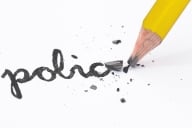You have /5 articles left.
Sign up for a free account or log in.
When there’s not a lot of good news around, it was uplifting to check Twitter late last night after a full day and find out that a federal judge has upheld fair use in an important case. Judge Harold Baer denied the Authors Guild et al’s motion for summary judgment (making quite a hash of their arguments in the process) but affirmed that what the Hathi Trust is doing is legal for three main reasons:
- Scanning books in order to create a giant index of them, without providing actual access to the works, is transformative.
- Copying for the purposes of preservation may not be transformative, but may well be a fair use.
- Making works available to the visually impaired is a fair use and one the judge finds particularly unarguable.
Some bits of the decision seem obscure, but are important. The Authors Guild argued that libraries have privileges defined in Section 108 of the copyright law and those are the only rights libraries have. The judge said firmly that this is not the case. Libraries can avail themselves of fair use beyond the special provisions of section 108. It’s also clear from the decision that the mere possibility that copyright holders might someday create a profitable product doesn't trump a present-day non-profit transformative use.
This is an important decision, both for the existence of the Hathi Trust corpus (an invaluable resource) but also for other mass digitization projects and the uses to which they can be put. Here are some links that explain better than I can what the decision means for libraries and scholars.
- James Grimmelmann “Hathi Trust Wins”
- Kenneth Crews “Court Rules on HathiTrust and Fair Use”
- Matthew Sag “HathiTrust Wins on Fair Use, and Just About Everything Else”
- Nancy Sims “Author’s Guild v Hathi Trust: A Win for Copyright’s Public Interest Purpose”
- Kevin Smith “A Big Win for Fair Use and Libraries”
James Grimmelmann points out we’re seeing a positive trend in balancing the public good against the copyright holders’ interests, writing “something significant in judicial attitudes towards copyright, computers, and education has clicked into place of late.” Nancy Sims reminds us to be grateful to the Hathi Trust for sticking its neck out. Kevin Smith thinks these lawsuits are not as threatening as he once thought, as the judicial rulings are actually affirming things libraries want to do. " Where once I feared a chilling effect," he writes, "I am now sensing a warming glow."
This is good outcome, and I hope part of a trend that will continue.





